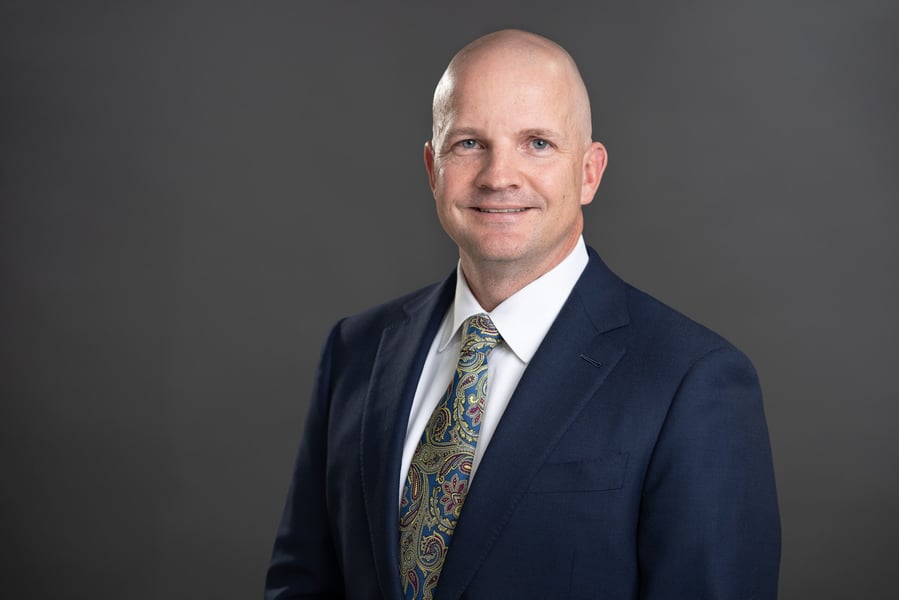

Market volatility isn't just a concern—it's a constant threat, and Jeff Hausinger, President & CEO at All Seasons Wealth, faces it head-on.
"It's not something, while it may seem like it ebbs and flows, it's always there," he says. "We try to focus our clients' attention on the long-term approach. The key is to make sure your clients are in a position where they can weather it.”
Recent market upheavals underscore his point. On Monday, the Dow nosedived over 1,000 points, the broader market dropped three percent and the Nasdaq, laden with risky tech stocks, plunged 3.5%. This turmoil wasn't confined to the US. Japan’s Nikkei 225 suffered its worst rout in history, plummeting 12%, while major Asian and European markets also took substantial hits. Hausinger’s approach helps ensure that clients aren’t forced to liquidate assets during these downturns.
“Make sure they're not in a position where they need to take out when the market happens to be down," he explains, stressing the importance of asset allocation and liquidity.
The current market tailspin stems from three interconnected fears: an impending recession, the Federal Reserve’s perceived inaction, and skepticism about AI investments. The US economy's fragility was highlighted last Friday when the Bureau of Labor Statistics reported a meager addition of 114,000 jobs in July, with unemployment spiking to 4.3%. This sudden rise from last year’s historic low is alarming and feeds recession fears. Hausinger, however, is not surprised by the economic uncertainty.
"I try to remember that we always have economic uncertainty," he notes.
Effective communication during these volatile times is crucial. Hausinger has witnessed a transformation in client communication over his 25-year career.
“It used to be that if something happened, I just picked up the phone and started making phone calls. We send out short market updates, short video clips that come from me or one of our analysts. We certainly get a handful of phone calls from a handful of clients, and we field those.”
Because, after all, not all clients react the same to market volatility.
"We have some clients that have been investing in the market for 30 to 40 years, and they understand market volatility," Hausinger points out. These seasoned investors are less rattled by short-term swings. In contrast, newer retirees or those with substantial recent investments may require more hand-holding. "They need a little more reassurance, a little more hand holding. And that's part of the job, comes with the territory," he explained.
Balancing short-term adjustments with long-term planning is essential. Hausinger stresses the importance of liquidity for immediate needs, whether it's for buying a second home or taking a vacation.
"We implement strategies that are designed to provide the liquidity our clients need if clients are planning to buy a second home, planning to go on vacation," he says.
Despite the need for short-term tweaks, the focus remains on long-term stability by investing in solid companies capable of navigating market fluctuations.
Cybersecurity is another critical concern, especially with the growing reliance on digital platforms. Hausinger emphasizes rigorous training and robust security measures to protect client information.
"We do an extensive amount of training on cybersecurity," he reveals. "We have some redundancies in place that we do as far as phone calls, verification. A lot of it's just about knowing your clients, understanding what their habits are, and looking out for those red flags.
"The key is to make sure your clients are in a position where they can weather it.
Any opinions are those of Jeff Hausinger and not necessarily those of Raymond James. Expressions of opinion are as of this date and are subject to change without notice. The information has been obtained from sources considered to be reliable, but we do not guarantee that the foregoing material is accurate or complete. The information contained in this material does not purport to be a complete description of the securities, markets, or developments referred to in this material. Any information is not a complete summary or statement of all available data necessary for making an investment decision and does not constitute a recommendation. Past performance may not be indicative of future results. Future investment performance cannot be guaranteed, investment yields will fluctuate with market conditions. Investing involves risk and you may incur a profit or loss regardless of strategy selected. Prior to making an investment decision, please consult with your financial advisor about your individual situation.
Securities offered through Raymond James Financial Services, Inc. Member FINRA/SIPC. Investment advisory services are offered through Raymond James Financial Services Advisors, Inc. All Seasons Wealth is not registered broker dealers and is independent of Raymond James Financial Services.
All Seasons Wealth. 100 N Tampa St., Suite 3750, Tampa, FL 33602, 813-490-6610. www.allwealth.com

Canadian stocks are on a roll in 2025 as the country prepares to name a new Prime Minister.

Two C-level leaders reveal the new time-saving tools they've implemented and what advisors are doing with their newly freed-up hours.

The RIA led by Merrill Lynch veteran John Thiel is helping its advisors take part in the growing trend toward fee-based annuities.

Driven by robust transaction activity amid market turbulence and increased focus on billion-dollar plus targets, Echelon Partners expects another all-time high in 2025.

The looming threat of federal funding cuts to state and local governments has lawmakers weighing a levy that was phased out in 1981.
RIAs face rising regulatory pressure in 2025. Forward-looking firms are responding with embedded technology, not more paperwork.
As inheritances are set to reshape client portfolios and next-gen heirs demand digital-first experiences, firms are retooling their wealth tech stacks and succession models in real time.
